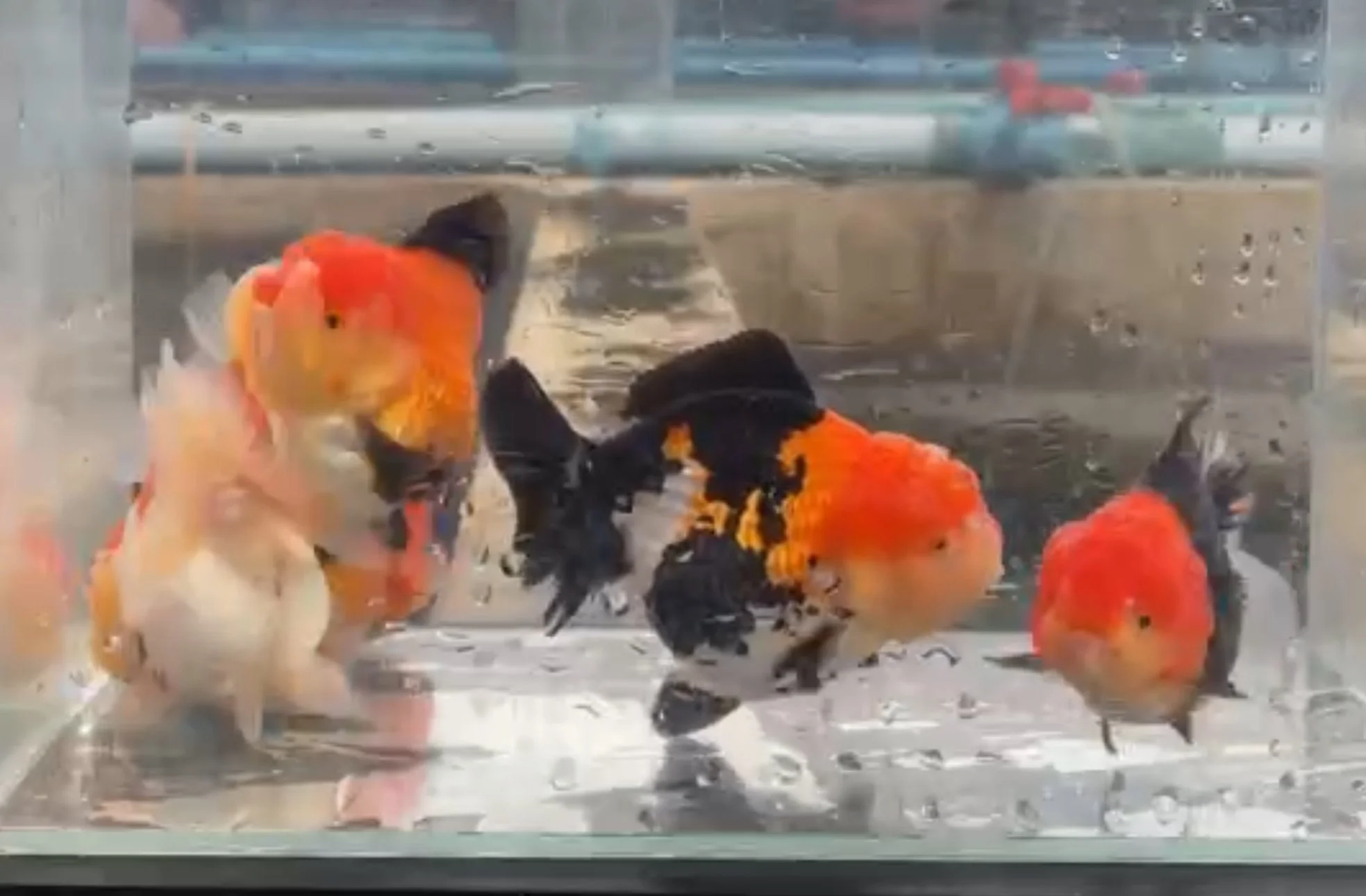 Image 1 of 1
Image 1 of 1


Thai Short Tail Oranda Goldfish
4” High quality Thai Oranda Goldfish
🐠 Thai Oranda Goldfish – Care Summary
1. Water Parameters:
Temperature: 20–24°C (68–75°F) – prefers cooler, stable temps.
pH: 6.5–7.5 (neutral is ideal)
Ammonia/Nitrite: 0 ppm (very sensitive)
Nitrate: <40 ppm (keep low with water changes)
Hardness: Moderate (5–19 dGH)
2. General Care:
Tank Size: Minimum 20–30 gallons per fish (they grow large and need space)
Filtration: Strong, efficient filtration needed (they produce a lot of waste)
Substrate: Smooth gravel or sand (prevents injury)
Diet: High-quality goldfish pellets, supplemented with blanched veggies (peas, spinach) and occasional protein (bloodworms, daphnia)
Maintenance: Weekly 25–50% water changes; monitor water quality often
Temperament: Peaceful and social, but slow swimmers
3. Tank Mates:
Best with other fancy goldfish (like Ranchus, Ryukins, or other Orandas)
Avoid fast, aggressive, or fin-nipping fish (e.g., barbs, cichlids)
Not ideal with tropical fish due to temperature mismatch
4” High quality Thai Oranda Goldfish
🐠 Thai Oranda Goldfish – Care Summary
1. Water Parameters:
Temperature: 20–24°C (68–75°F) – prefers cooler, stable temps.
pH: 6.5–7.5 (neutral is ideal)
Ammonia/Nitrite: 0 ppm (very sensitive)
Nitrate: <40 ppm (keep low with water changes)
Hardness: Moderate (5–19 dGH)
2. General Care:
Tank Size: Minimum 20–30 gallons per fish (they grow large and need space)
Filtration: Strong, efficient filtration needed (they produce a lot of waste)
Substrate: Smooth gravel or sand (prevents injury)
Diet: High-quality goldfish pellets, supplemented with blanched veggies (peas, spinach) and occasional protein (bloodworms, daphnia)
Maintenance: Weekly 25–50% water changes; monitor water quality often
Temperament: Peaceful and social, but slow swimmers
3. Tank Mates:
Best with other fancy goldfish (like Ranchus, Ryukins, or other Orandas)
Avoid fast, aggressive, or fin-nipping fish (e.g., barbs, cichlids)
Not ideal with tropical fish due to temperature mismatch

